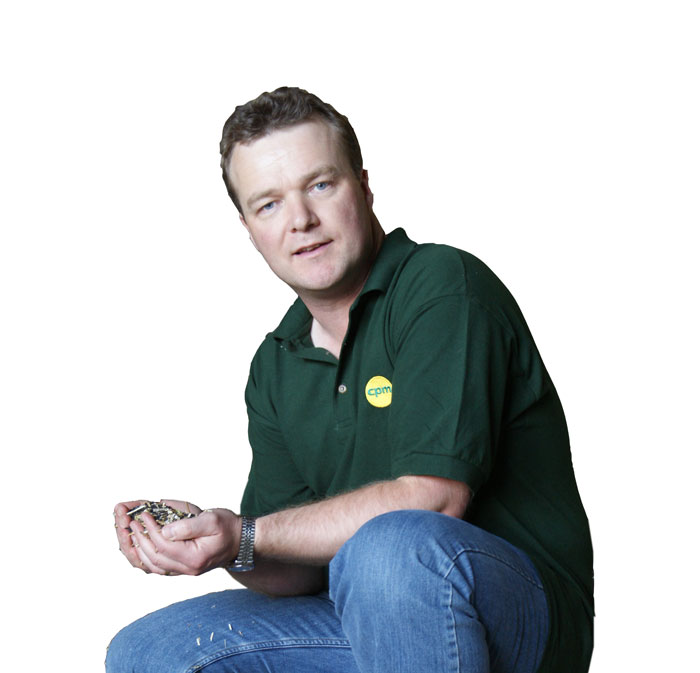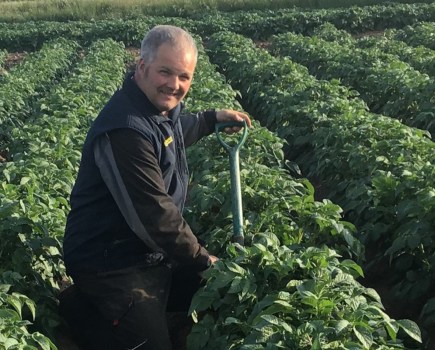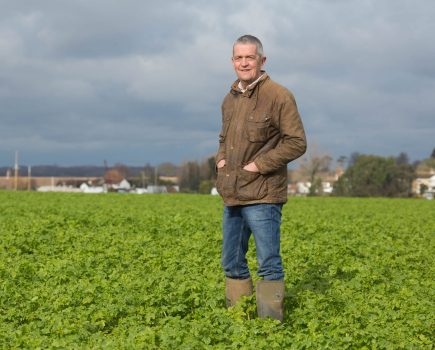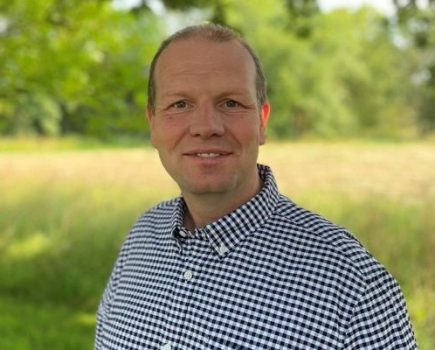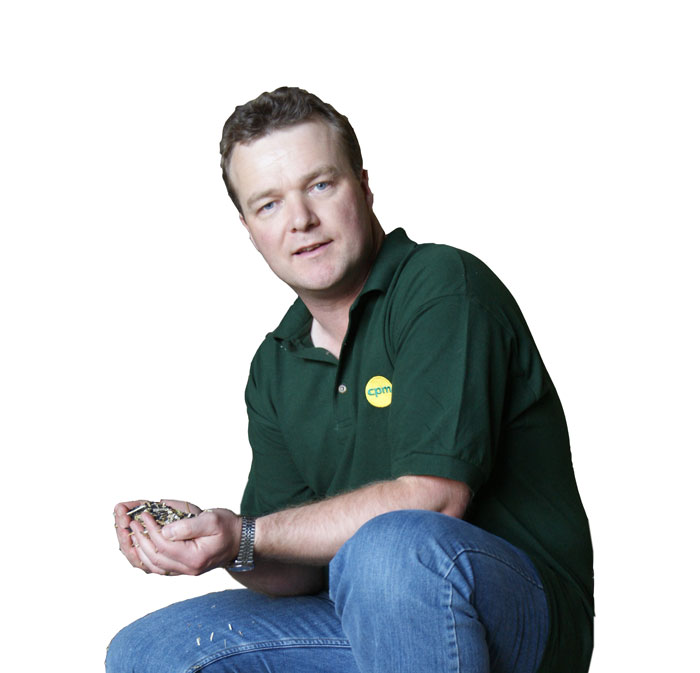 Next year marks 100 years since my grandfather bought the farm here, and I wonder what he’d think of how the business and farming in general have progressed since.
Next year marks 100 years since my grandfather bought the farm here, and I wonder what he’d think of how the business and farming in general have progressed since.
His passion was for Dairy Shorthorns, which he pursued after he came back from the First World War, gathering knowledge and rapidly building up the Wicklesham herd from carefully selected genetics of leading UK breeders. It wasn’t long before his first Royal Show win, and the herd’s reputation grew from similar success at local and regional shows.
Perhaps what marked his business aside from others were the strong international connections he forged, trading genetics (which in those days meant physically shipping livestock) with Argentina, South Africa, Australia and elsewhere.
But what I find most interesting is that he built his business up at a time when farming globally was going through one of the biggest depressions it had ever experienced. Productivity was on the floor and arable land had long been abandoned, left to lapse into pasture or scrubland.
The UK Government, along with many, was reluctant to step in because it was ideologically committed to free trade and supporting the booming commercial and manufacturing sectors. Grain imports soared to an all-time high, fed largely by the North American prairies. But even there, the continual drive to raise production had the effect simply of lowering prices and increasing rural poverty. Mechanisation led to overproduction and unemployment rose as wages fell.
One hundred years later, I can’t help but feel we’re about to plunge into another agricultural depression.
I struggle to see the upside for UK arable farmers of a negotiating position in trade talks, both with the US and EU, that seems determined to lower tariffs on agricultural commodities to zero. At the same time, the Government stepped in to whip MPs against supporting Neil Parish’s proposed amendment to the Agriculture Bill that would have protected UK food standards from being undermined by imported produce.
What’s more, the USDA is pushing through its Innovation Agenda with a goal of increasing agricultural production by 40% by 2050. Whichever way you look at it, the UK faces a tsunami of grain imports over the next decade, and that’s before you’ve even begun to look at how production might fare in Russia and around the Black Sea. The average UK arable business, that bases its returns on a commodity far easier and cheaper produced elsewhere in the world, is in a perilous position.
There is, however, a glimmer of hope. In all its talk of freeing up trade, the government does appear to back innovation and has committed itself to “liberate the UK’s extraordinary bioscience sector from anti genetic modification rules”, to quote Boris Johnson. Exactly what that means is yet to play out, but while the Government’s indicating it won’t prop up either farming or producing food, it does seem prepared to invest in new ways to do both.
And the UK is perhaps in a good place to do this, or at least a better one than it found itself in 100 years ago. Back then, UK farming had already been suffering a lack of investment and low prices for the previous 50 years. Subsidy may now be dropping away, but farmers have benefitted from around 70 years of continued support. Although not perfect, we have well developed extension services compared with other countries, a good infrastructure, relatively high-skilled workforce and a pool of farming talent that’s arguably the best in the world.
Factor in the “extraordinary” capabilities of our bioscience sector (and my view is that’s no exaggeration) and you can see the sense that if the Government should invest in anything, it should nurture and help lead a new way for the world in food and farming. If there’s any advantage in breaking away from the EU, surely it’s in having the freedom to set a direction that’s the polar opposite to one that’s criticised for stifling innovation?
The litmus test may just have presented itself. A cross-party group of MPs and Lords are planning to table an amendment to the Agriculture Bill as it passes through the House of Lords. This may pave the way for new plant-breeding technologies, based on gene-editing, to be classed as non-GMO. The move would be in line with the internationally recognised Cartagena Protocol, to which the UK is a signatory and bring us in step with most other countries, although notably not the EU. The Government has always been against the EU ruling that classed gene-editing as GMO. Will it now support the amendment and move to diverge? And if it does, could that be the shot in the arm that takes certain UK arable businesses to exciting new realms?
A lot of good businesses will struggle to compete In this Brave New World, in my view. But even if agriculture hits its deepest depression in 100 years, opportunities will present themselves to the most progressive and innovative – I think that’s probably what my grandfather would say. How great those opportunities will be, and who those farmers are, we’re yet to see. But chances are, it’s the very farmers who have taken the time to read this month’s issue of CPM.
Tom Allen-Stevens has a 170ha farm in Oxon, where 100 years of change has seen it move from Dairy Shorthorns to dairy to mixed and now to arable. @tomallenstevens

